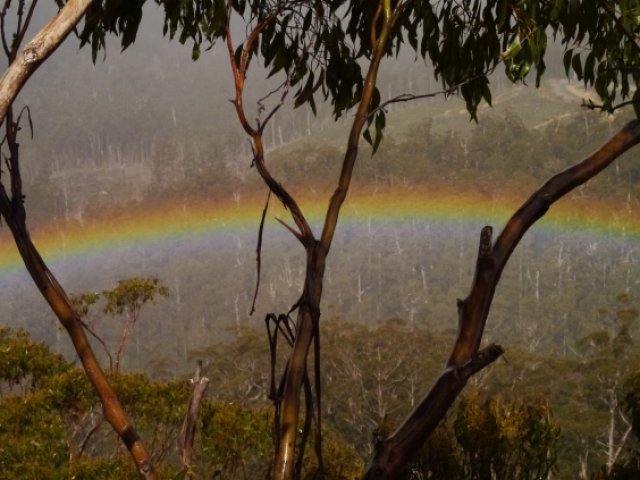
Environment groups The Wilderness Society, Environment Tasmania and the Australian Conservation Foundation signed a “forest peace deal” with the Forest Industry Association of Tasmania on November 22.
Still Wild Still Threatened and the Huon Valley Environment Centre released the statement below on November 23.
***
Upon scrutiny of the forest agreement environment groups Still Wild Still Threatened and the Huon Valley Environment Centre are raising concerns about the certainty for the protection of forests.
“It is far too early to be claiming a win for the environment based on this agreement, because the forests remain under threat," said Miranda Gibson of Still Wild Still Threatened.
"Even if it is passed by the Legislative Council, the deal offers no clear time frames for protection. And in fact, it allows for the continued logging of those areas that are ear-marked for protection. I have made the commitment to stay in the Observer Tree until the forest is protected and as this is still uncertain, I will be remaining in the tree.
“We should not be overstating the real figures in this agreement," said Jenny Weber of the Huon Valley Environment Center. "To say that there are over half a million hectares protected is misleading.
"The 395,000ha, which will make up the first tranche, is the only figure that is likely to even receive protection, yet even that remains uncertain. And in addition [it] will be eroded by a further logging. The agreement leaves little room for confidence that the rest will ever see protection. Even this 395,000 ha remains uncertain, being subject to a range of clauses, durability reports, rescheduling and ongoing logging in the meantime."
Gibson said: “This agreement could have been an opportunity to move Tasmania forward, but instead it feels like we are going backwards, entrenching ongoing native forest logging and in particular a return to woodchipping. This is a part of the industry that has already caused massive destruction to Tasmania’s environment and proven to be a failure in today’s economy."
Weber said: “This agreement locks in woodchipping, clearfelling and Permanent Production Zones for logging of native forests, yet fails to guarantee secure proteciton for the forest. Clauses place conservation outcomes secondary to wood supply.”
Gibson: “We will continue to speak up for the forests, because this agreement cannot be seen as the end of all environmental progress in Tasmania. Tasmania would set a dangerous precedent to allow this deal to be used to silence community engagement and public debate around such a critical issue."
Weber said: “Our scrutiny of this agreement has revealed controversial concessions made to the native forestry industry that should be undergoing a rapid transition out of native forests. Certification of controversial logging practices, maintaining Forestry Tasmania in its current form, a subsidised propaganda machine for the signatories to endorse native forest products in the market, exempting logging from an upgrade in the forest practices code and endorsement of industrial scale wood chipping are major hindrances to a solution."